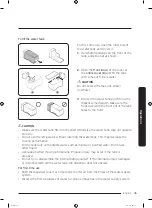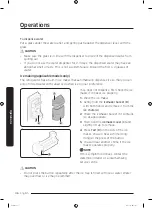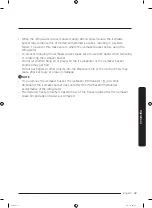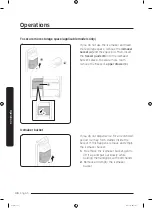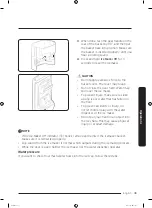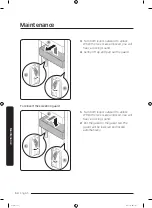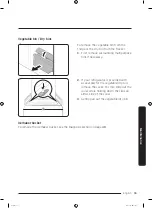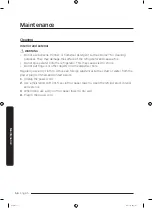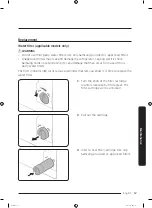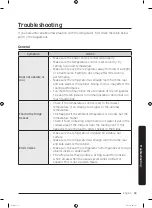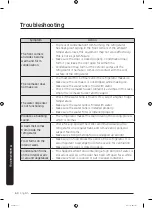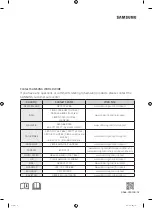
English
59
Troubleshooting
If you encounter an abnormal situation with the refrigerator, first check the table below
and try the suggestions.
General
Symptom
Action
Does not operate or
cool.
• Make sure the power cord is connected properly.
• Make sure the temperature control is set correctly. Try
setting to a lower temperature.
• Make sure to keep the refrigerator away from direct sunlight
or a heat source. Failing to do so may affect the cooling
performance.
• Make sure the refrigerator has enough room from the rear
and side walls or the cabinet. Failing to do so may affect the
cooling performance.
• Too much food may block the ventilation of the refrigerator.
To keep the refrigerator in normal operation, do not put too
much food inside.
Food in the fridge
freezes.
• Check if the temperature control is set to the lowest
temperature. If so, change to a higher or the optimal
temperature.
• This happens if the ambient temperature is too low. Set the
temperature higher.
• Check if food containing a high portion of water is put in the
coldest area of the fridge or near the cooling vent. If this
happens, move the food to other shelves in the fridge.
Emits noises.
• Make sure the refrigerator is installed on a stable, flat
surface.
• Make sure the refrigerator has enough room from the rear
and side walls or the cabinet.
• Make sure to keep the refrigerator from impurities or foreign
objects inside or underneath.
• The refrigerator may produce a ticking sound from inside,
which occurs when the various accessories contract or
expand. This is not a system failure.
Troubleshooting
Untitled-15 59
2016-01-22 5:01:55

